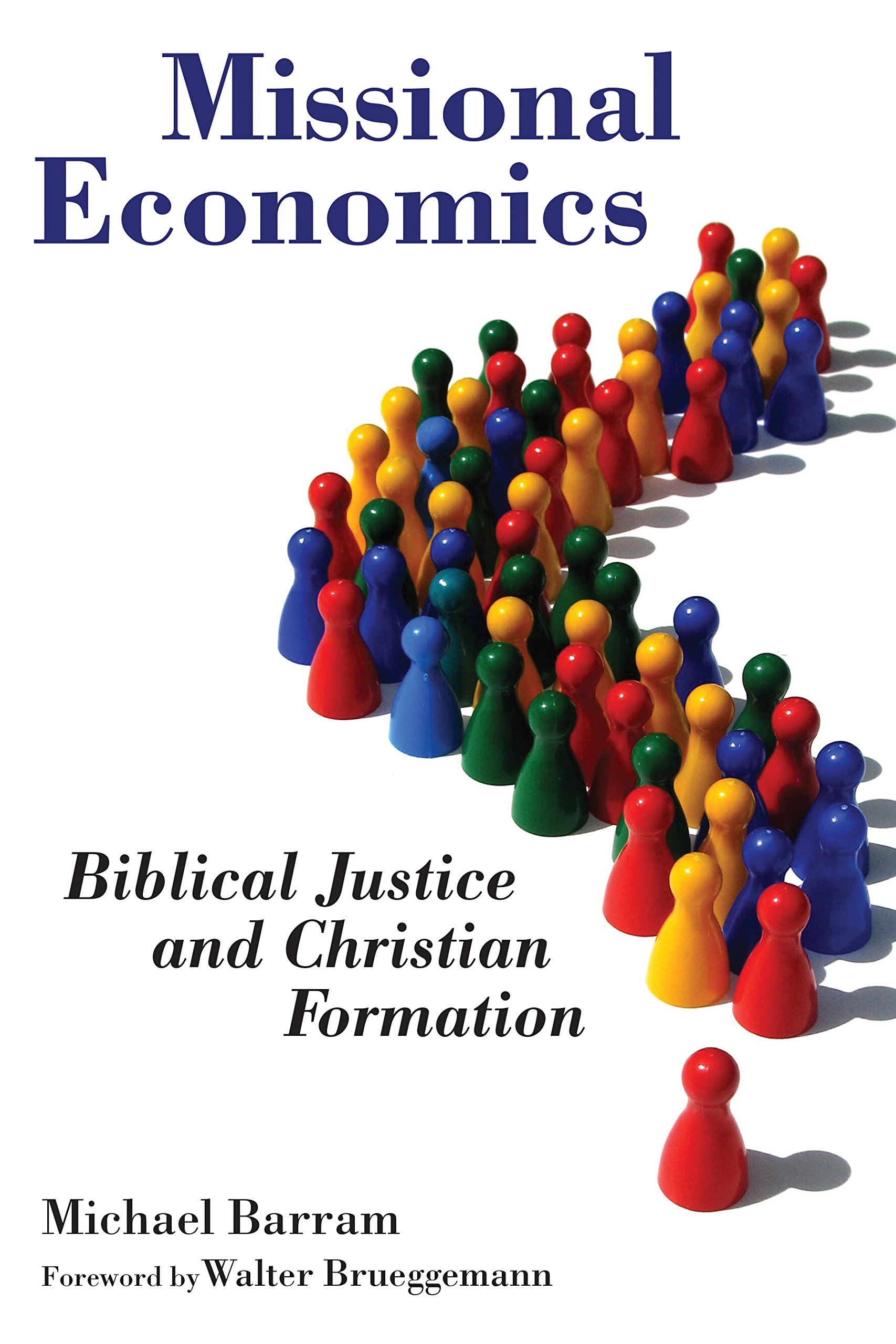Trey Dimsdale: “Missional Economics – Biblical Justice and Christian Formation” by Michael Barram

Some of the most important conversations in Christianity today involve questions of justice and how Christians should not only respond as individuals and as members of the “holy catholic church” to injustice, but also be positive catalyst of just societies and social institutions. It is heartbreaking for those of us within the camp of Christianity to look into the past and see ways in which those who have come before in our tradition have sometimes actively contributed to injustice due to cultural blinders, a lack of familiarity with social or technological developments, or any number of other factors. Economic issues are no exception to this and in an age of unparalleled prosperity among some, there is no doubt that questions of justice as they relate to economics is a necessary part of this conversation. Barram is to be applauded for engaging in such a worthy dialogue.
In this work Barram begins by describing an emerging field in biblical studies that takes the name “missional hermeneutics.” Given that I am not a scholar in the field, I can attest that his discussion is helpful for the non-specialist and there are some aspects of this approach for which I have great enthusiasm. This approach recognizes that the church has a “calling as a community sent into the world to bear witness to God’s holistic purposes.” (page 25). Such a corrective is needed in all traditions as Christians often become narrowly focused on particular aspects of our mission to the detriment of others. It is also laudable that he turns to Scripture as a primary source of Christian formation. (page 12).
But not all that the author lays out is helpful in the analysis. Primarily I am referring to his advocacy for “the contemporary Christian community as the locus of biblical interpretation.” (page 33). I am always cautious to read such claims because, as Barram concedes, such claims often accompany a “loss of objectivity.” (page 34). It is not possible, as the author argues, to approach hermeneutics without bias influenced by time and space, but the solution is not to understand questions posed to Scripture as novel and therefore demanding a “new” interpretation. This approach seems to understand the Christian tradition as a strand of discreet epochs defined by the culture in which the church is immersed rather than an organic and interconnected flow of generations of the faithful in different times and places, which is inherent in the concept of catholicity. Making this assumption leaves open the grave possibility of introducing contemporary biases without any external referent to provide a corrective.
Serious moral reflection guided by biblical considerations is vitally important for Christians if the church is to be a vehicle for accomplishing God’s mission in the world. But the proper definition of the problems about which we reflect is the starting point for this reflection, and it appears in places that Barram makes assumptions that reveal a bias. In fact, his conclusion to the book states it clearly. He asserts that our “contemporary economic environment…encourage[s]” us to “choose death,” followed by a litany of caricatures of the positions held by proponents of free market capitalism. (page 241). At one point he even suggests that the biblical ideal is a communal Christian socialism, an idea that has been addressed and rebutted by a number of authors (page 165). The author also often uses terms critical to his arguments that are never clearly defined such as “justice” and “injustice” (page 120).
There is no doubt that there are excesses in our society that require moral and ethical correction, and for the Christian that correction should be rooted in Scripture. Barram makes these points well, but this project reads very much like a thinly veiled critique of market economics that never directly engages the field in an honest and fair way. As stated above, Barram does makes some accurate and important observations, but does not do quite as well in attempting to diagnose the root causes. But there are other sources from those within theological studies and the social sciences alike that more honestly and fairly examine the application of the biblical text to real and pressing social and economic problems.
Missional Economics: Biblical Justice and Christian Formation by Michael Barram was published in 2018 by Wm. B. Eerdmans (ISBN-13: 978-0802875075). 232pp.

Trey currently works for the First Liberty Institute, one of the the largest public interest law firms in the United States. He holds degrees in law, theology, and ethics and has worked as an attorney, educator, non-profit administrator, and pastor. He is the co-editor of Work in Christian Perspective (SCM, 2018), and the author of several articles, essays, and editorials on a wide range of topics. He has spoken around the world on issues as diverse as housing policy, philosophy of law, and religious freedom.
